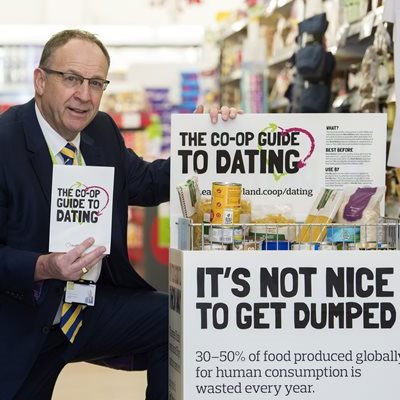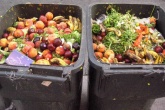Co-op chain to fight food waste by ignoring ‘Best Before’ dates
A regional chain of supermarkets is making a stand against food waste by keeping products past their ‘Best Before’ dates on shelves, for a knock-down price of 10-pence.
The East of England Co-op, a completely separate entity to the national Co-Operative Group or Co-op Food, has announced that it will start selling products beyond their ‘Best Before’ date in its 125 food stores across Norfolk, Suffolk and Essex.
Products that have passed the date printed on their packaging will be sold for a nominal 10p, in a move that the store predicts will save two tonnes of food from being wasted.
 Last week, WRAP published new guidance for food labelling emphasising that ‘Use By’ dates should only be used on foods that carry a risk of becoming unsafe in a short period of time and that all others should only carry ‘Best Before’ dates as foods can be safely redistributed and consumed after the date.
Last week, WRAP published new guidance for food labelling emphasising that ‘Use By’ dates should only be used on foods that carry a risk of becoming unsafe in a short period of time and that all others should only carry ‘Best Before’ dates as foods can be safely redistributed and consumed after the date.
Many organisations have suggested that consumers are not well-informed enough about the difference between the two labels, or variants of both, and that food is safe to eat after its ‘Best Before’ date, and is often still good to eat years later.
While ‘Use By’ dates are essential warnings for short-life food that can create health risks, ‘Best Before’ dates simply highlight the estimated time of optimum quality, and are mainly for retailers to ensure that brands are not sold short by keeping items that may have lost their freshness on shelves.
The East Anglia retailer has run a three-month trial in 14 of its stores, offering products past their ‘Best Before’ date - the majority of which are tinned products, packets and dried food - for 10p for one month past the labelled date.
It has now extended it across the region as part of its food waste campaign, ‘The Co-op Guide to Dating’, which carries the tagline: ‘It’s not nice to get dumped’.
Roger Grosvenor, Joint Chief Executive at the East of England Co-op, commented: “During our trial we found our 10p items went within hours of being reduced, sometimes quicker. The vast majority of our customers understand they are fine to eat and appreciate the opportunity to make a significant saving on some of their favourite products.
“This is not a money making exercise, but a sensible move to reduce food waste and keep edible food in the food chain. By selling perfectly edible food we can save 50,000 items every year which would otherwise have gone to waste.”
The campaign will also see the retailer instigating a new ‘Reduced to Clear’ policy that offers ‘more significant discounts earlier in the day’ on products nearing their ‘Use By’ date. Stores will also review sales data more closely to monitor waste levels in each store in order to record which product lines are generating excessive waste.
How retailers monitor their waste is also a hot topic, with a group of major retailers currently discussing a consistent reporting methodology that will enable the identification of food waste ‘hotspots’.
While some stores, like Tesco, scans each item that is out of date to create a ‘bottom-up’ picture of where waste is arising in its stores, others simply weigh bins, which doesn’t provide an indication of where waste is being created and therefore doesn’t facilitate improvements. 








